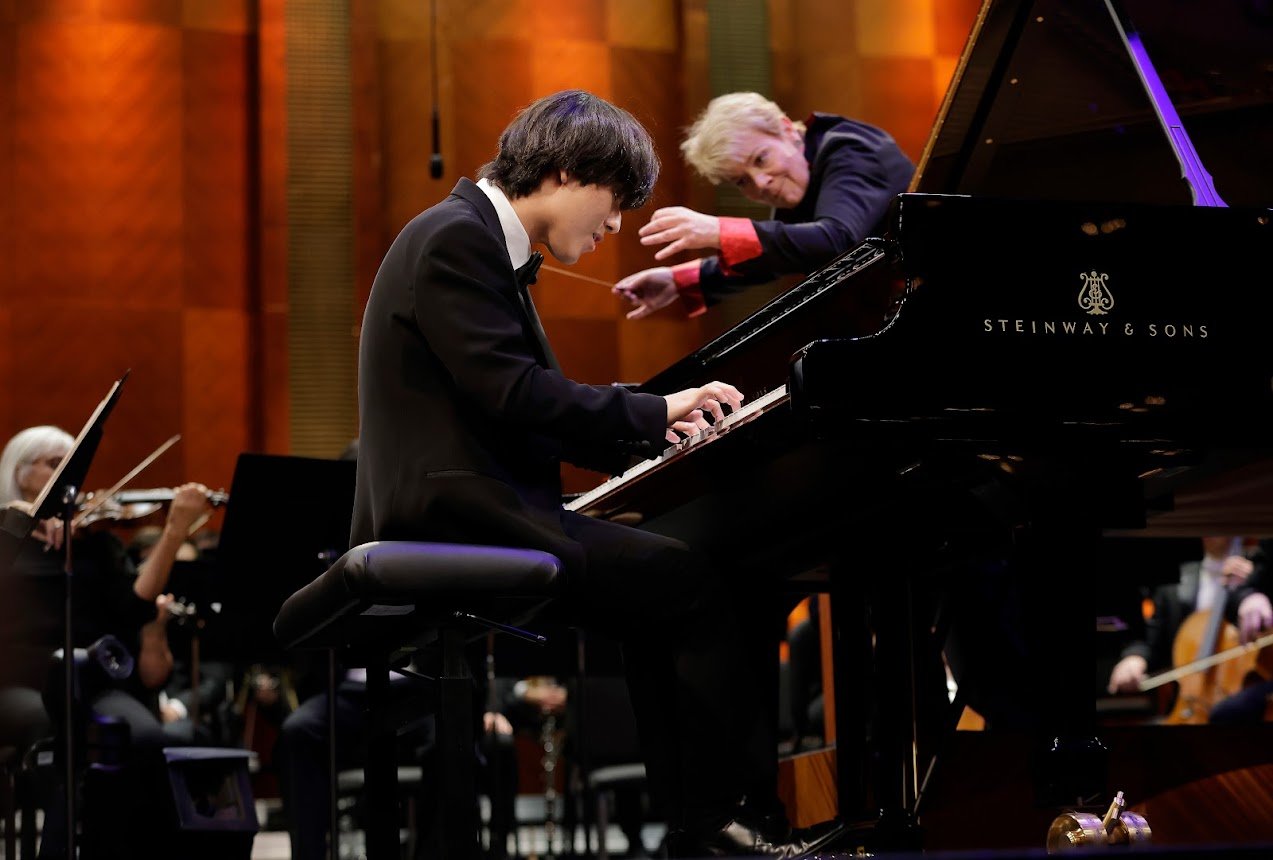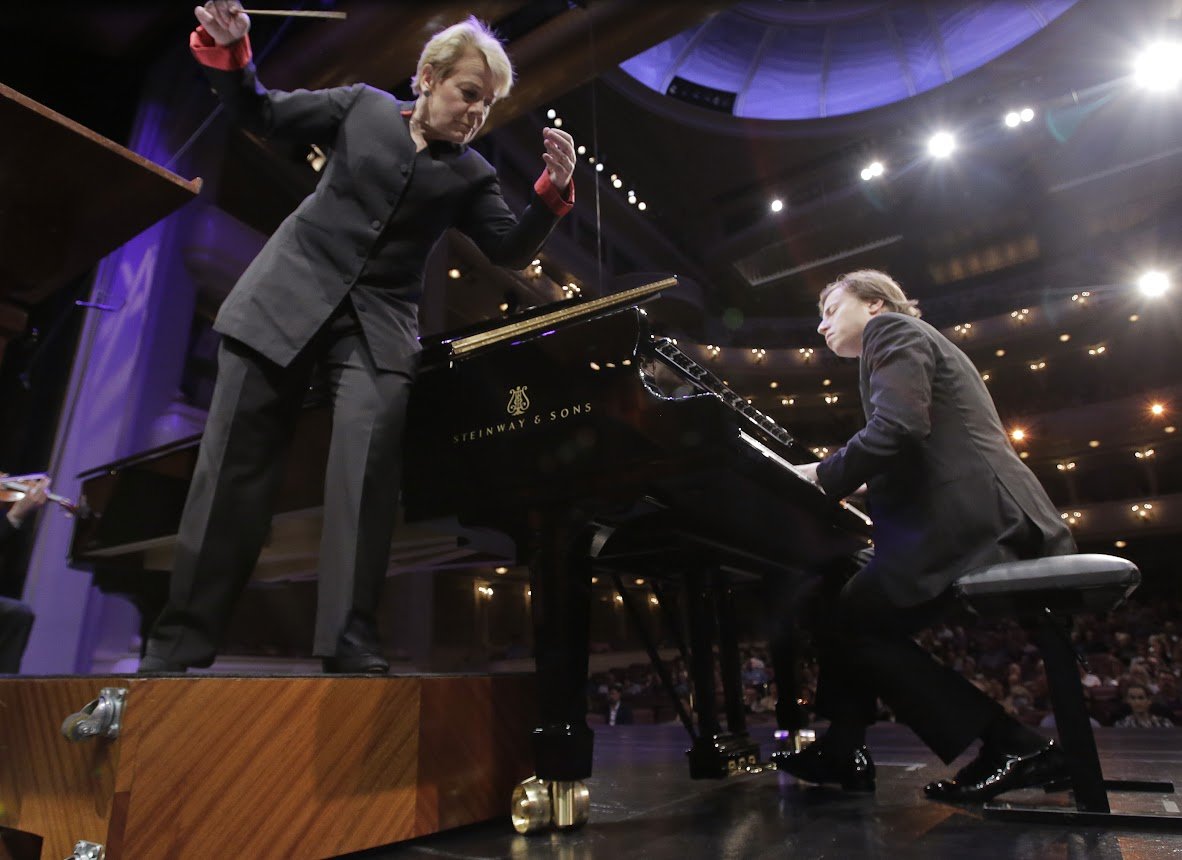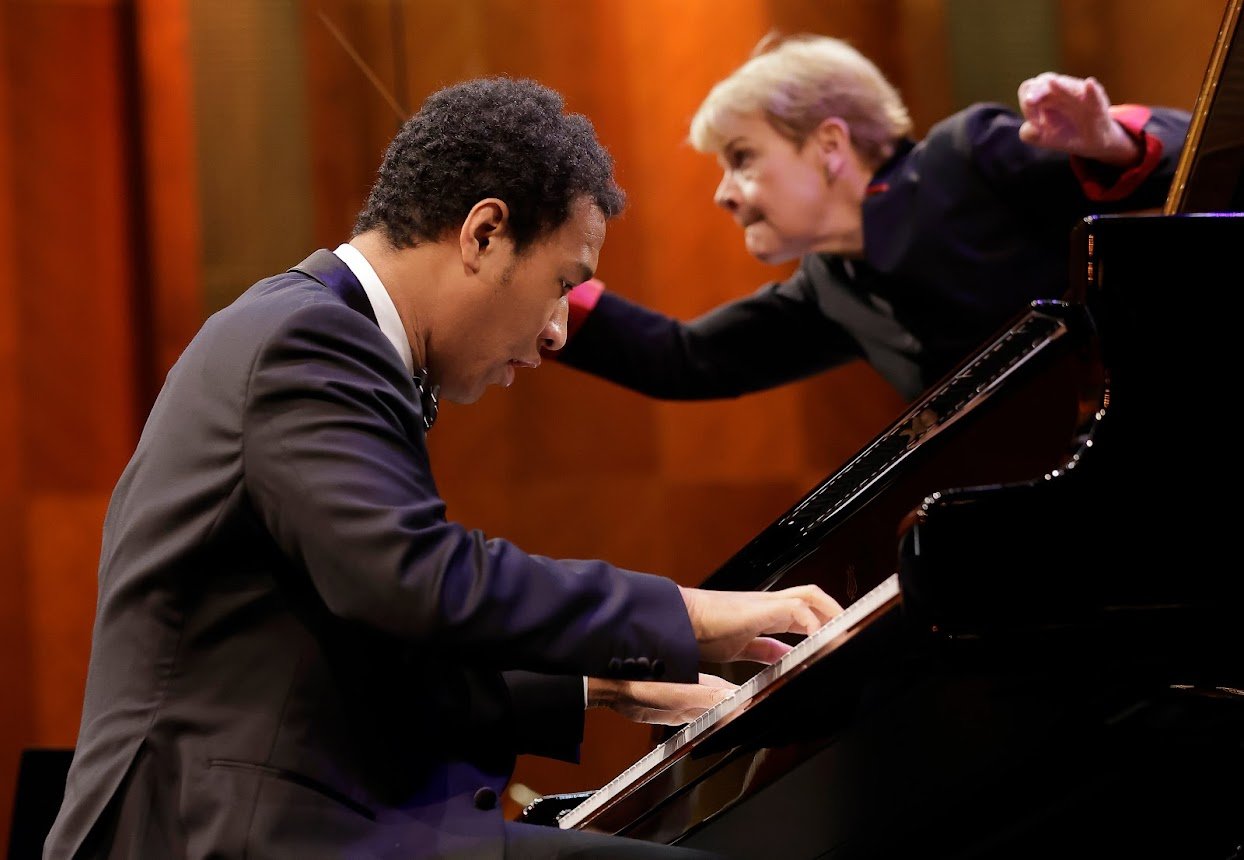Final Round Concert 1: Lim, Shmukler, Stevenson
—Wayne Lee Gay
The first night of the final round of the 2022 Cliburn Competition brought, at least partially by coincidence and the luck of the draw, a nicely balanced evening of concertos, performed with the Fort Worth Symphony and conductor Marin Alsop. There was great music for the audience, and some revelatory moments—both positive and negative—for the competitors.
The youngest competitor in the competition, South Korean Yunchan Lim, 18, began the evening’s performances with Beethoven's Piano Concerto No. 3, which served as a good bridge between the twelve Mozart concertos of the semifinal round and the opulent romantic works that will dominate the finals.
Beethoven here followed the practice of his classical forbears, including Mozart, with a long orchestral introduction; Lim launched the opening piano phrase assertively before introducing a marked contrast of tone and dynamic level in his first quiet statement of the main theme. Obviously extraordinarily talented, he didn't entirely succeed at the special skill of concerto playing, particularly in the challenge of matching a rapid scale passage to the demands of the conductor and orchestra.
On the whole, Lim demonstrated a strong sense of Beethoven’s style. Yet though the composer’s cadenzas are generally more stormy and aggressive than the rest of the concerto, Lim chose to shift—not entirely convincingly—to a Brahmsian style in those sections, which felt jarring. And a little more breathing space would have made sense after the final E-major chord of the middle movement, before the sudden leap by Lim into the final movement in C minor.
Russian Ilya Shmukler, 27, came on next with that perennial favorite of Cliburn competitors, Rachmaninoff's Piano Concerto No. 3. A fine and dramatic showcase for pianists who can climb this musical version of Mount Everest, it has been a pathway to the gold for a number of past medalists at the Cliburn, and a graveyard for the hopes of others.
For Shmukler, it was more likely the latter. Fine and thrilling moments abounded in his performance, mixed with instances of a melody line that faded and, and as he approached the final moments, signs of fatigue—most obvious in the passages of rapid block chords near the end of the Finale. Shmukler introduced an intriguingly soft volume in passages marked pianissimo, but the effect became tiring after several occurrences, and was not entirely in keeping with the work's momentum.
After intermission, American Clayton Stephenson, 23 offered a competition rarity, Gershwin's Piano Concerto in F. His general interpretation was enchanting, with that unique American take on this grandly jazzy American work. Interestingly, Gershwin revived Mozart's strategy of a long orchestral introduction before the pianist's first phrase. Stephenson made the most of his entry, setting a pattern of expressive, quasi-improvisational style (including a few totally appropriate jazz-like tinkerings with the text). Though one would never mistake Gershwin for Mozart or Beethoven, he resembled those classical masters in his creation of a predominantly cheerful concerto (as opposed to the generally dark textures of the romantic era). Gershwin also created, like Beethoven and Mozart, a conversation between orchestra and soloist, giving Stephenson an opportunity to demonstrate his subtle charisma and unique level of communication. Like both Shmukler and Lim, Stevenson had a few moments when coordination with the orchestra and conductor seemed a little precarious; he'll take on Rachmaninoff's Third on Friday evening to demonstrate his abilities in a standard romantic concerto.


